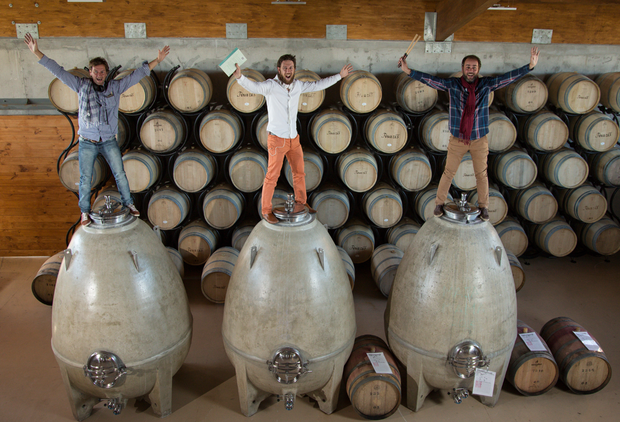
Why Argentinian reds are the new Malbec
Much of Argentina's success over the past few years is undeniably down to the runaway success of the Malbec in the UK.
If this were the X Factor, Malbec would be Argentina's undisputed breakout star, but like all talent spotters, the industry is looking for the next big thing.
Specialist importers, Hallgarten Druitt & Novum Wines, who have a special interest in this region, have recently added the Michelini brothers' Zorzal label to sit alongside Andeluna, Doña Paula, Matias Riccitelli and Piattelli in their Argentinian portfolio.
At a glance, the range which is being launched via Hallgarten this week gives a good snapshot of the Argentinian category in the UK.
All with a RRP of 15.99, the selection includes a Sauvignon Blanc, Argentina's second most planted - but often one dimensional - grape Bonarda, a Pinot Noir, Cabernet Franc and a Tinto de Tiza Malbec blend.
Although Cabernet Franc has yet to crack the UK in any meaningful way, Hallgarten's head of buying, Steve Daniels, is backing its potential.
"It took five years for Malbec to get where it is today and it's going to be the same with Cabernet Franc," he said.
"Nothing moves quickly in the wine business. Cabernet Franc in Argentina is very exciting, because the way the winemakers are doing it is probably the best way to make Cabernet Franc: it needs warmth but also bit of sunlight. Argentinian Cabernet Franc has a great perfume. There are very few places in world you can get that."
While Cabernet Franc continues to chip away at the UK, Daniels believes that overall perception and quality of the region's reds are on a similar trajectory.
"At the moment everyone thinks of Malbec, but as time goes by, people will see Argentina as great overall red wine producer," Daniels predicts.
In the meantime, Malbec continues to resonate with UK consumers, with everyone from those looking to fry up a summer steak to trendy Shoreditch buyers.
The Michelini brothers, whose irreverent and care free approach undoubtedly plays into the country's image of producing young, vibrant winemakers, are attacking Malbec form a different angle.
"A lot of Malbec is still made in the traditional way, where the thinking is that the more oak, the better," Daniels explained.
"But these guys are making wine in high altitude, limestone, making them in concrete egg cementers, which is totally different. It's a very terroir-driven concept which lets the fruit express itself, which is important because where they are is very specific."
Founded in 2008, the brothers' label, Zorzal Wines, is made from grapes from vineyards in Gualtallary at 1,350 metres above sea level in the foothills of the Tupungato volcano.
Rocky limestone with chalk-streaked stones allows winemaking director Juan Pablo Michelini to indulge his preference for fruit over oak.
While winemakers continue to push boundaries and impress UK consumers, the economy - and nature - have been making their own plans.
Last year's catastrophic El Nino storms and Brexit-induced price increases have affected exports, but Daniels is choosing to take away a silver lining: "Argentina had a hideous year last year with yields down 50% in some places thanks to the storms. Supermarket prices of Malbec will have to rise, but perhaps this will force consumers to consider other varieties and try more of what Argentina has to offer."




